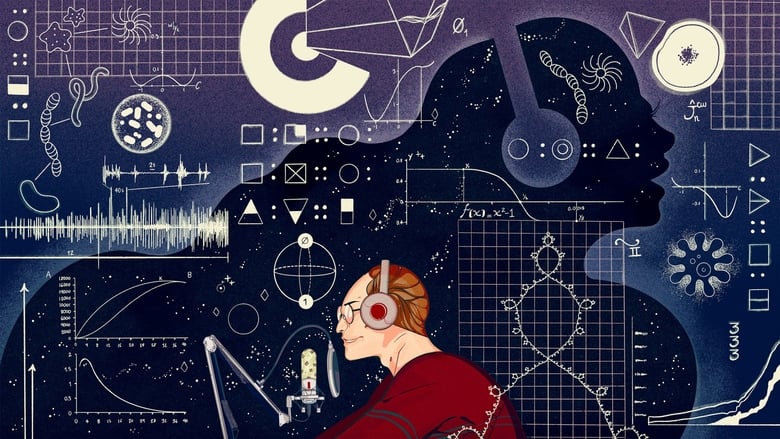
Trailer
Synopsis
Explore mind-bending developments in basic science and math research. Quanta Magazine is an award-winning, editorially independent magazine published by the Simons Foundation.
Episode 25 : 2020's Biggest Breakthroughs in Biology
December. 25,2020
In 2020, the study of the SARS-CoV-2 virus was undoubtedly the most urgent priority. But there were also some major breakthroughs in other areas. We'd like to take a moment to recognize them.
Episode 24 : 2020's Biggest Breakthroughs in Math and Computer Science
December. 24,2020
For mathematicians and computer scientists, 2020 was full of discipline-spanning discoveries and celebrations of creativity. We'd like to take a moment to recognize some of these achievements.
Episode 23 : 2020's Biggest Breakthroughs in Physics
December. 23,2020
This year, two teams of physicists made profound progress on ideas that could bring about the next revolution in physics. Another still has identified the source of a longstanding cosmic mystery.
Episode 22 : The 'Male' and 'Female' Brain: New Clues in an Age-Old Question
December. 14,2020
Questions like “why do men and women act differently?” are age-old, with tangled, deeply buried answers. But that is why Catherine Dulac, a Howard Hughes Medical Investigator and a professor of molecular and cellular biology at Harvard University, has become so well respected by her neuroscientist colleagues for the originality and creativity with which she has brought important answers to light.
Episode 21 : How to Shrink Big Data
December. 07,2020
Jelani Nelson, a computer scientist at the University of California, Berkeley, expands the theoretical possibilities for low-memory streaming algorithms. He’s discovered the best procedures for answering on-the-fly questions like “How many different users are there?” (known as the distinct elements problem) and “What are the trending search terms right now?” (the frequent items problem). Nelson’s algorithms often use a technique called sketching, which compresses big data sets into smaller components that can be stored using less memory and analyzed quickly.
Episode 20 : Inside Dynamical Systems and the Mathematics of Change
November. 17,2020
Bryna Kra searches for structures using symbolic dynamics. “[I love] finding order where you didn’t know it existed,” she said. "This is how I think about math: It’s about how things fit together."
Episode 19 : The Cosmologist Who Dreams of Dark Matter
November. 05,2020
Cora Dvorkin studies the invisible universe. Known as dark matter, it is thought to comprise roughly 85% of all matter in the universe. So far, no researcher has been able to directly detect it. But that only further excites Dvorkin, who is on a quest to uncover its secrets.
Episode 18 : The Extraordinary Math Hidden in Everyday Life
October. 26,2020
L. Mahadevan is a professor of applied mathematics, physics, and organismic and evolutionary biology at Harvard University. He uses mathematics and physics to explore commonplace phenomena, showing that many of the objects and behaviors we take for granted, and consequently give little thought to, are quite extraordinary upon closer examination.
Episode 17 : The Bold Quest to Launch the Internet in Space
October. 21,2020
Vint Cerf is one of the fathers of the internet. Decades ago, he and Robert Kahn developed the architecture and protocol suite known as Transmission Control Protocol/Internet Protocol (TCP/IP). Anyone who has ever surfed the web, sent an email, or downloaded an app has them to thank.
Now, Cerf wants to boldly go where no internet has gone before. He's designing an interplanetary internet. But extending the internet to space isn’t just a matter of installing Wi-Fi on rockets. Scientists have novel obstacles to contend with. In this new video, Cerf discusses how an internet in space.
Episode 16 : Cracking the Puzzle of Biodiversity
October. 14,2020
MIT physicist Jeff Gore tests theories about microbe communities experimentally and finds new rules governing ecological stability.
Episode 15 : Urban Traffic and Complex Systems
September. 28,2020
Carlos Gershenson, a computer scientist and complexity researcher at the National Autonomous University of Mexico, answers questions about how principles of adaptation and self-organization can help transportation systems beat traffic jams and other urban mobility problems.
Episode 14 : The Woman Who's Rewriting Higher Category Theory
September. 03,2020
By turning higher category theory on itself, Emily Riehl hopes to make the powerful perspective more accessible to other mathematicians.
Episode 13 : Emily Riehl: Mathematician, Musician, Educator
September. 02,2020
Emily Riehl talks about how higher category theory is like the viola, why she's drawn to expository writing, and the responsibility mathematicians have to address social justice issues.
Episode 12 : 'Gravity Is the Law That Makes Everything Happen'
August. 18,2020
The theoretical physicist Claudia de Rham explains why gravity is so fundamental to our understanding of everything in the universe.
Episode 11 : Impossible Life Under the Ice—on Earth and Beyond
July. 20,2020
The microbial ecologist John Priscu of Montana State University discusses what led him to seek life beneath the barren, frozen wastes of Antarctica — and how his discoveries there are shaping the search for life on other worlds.
Episode 10 : Liz MacDonald on Strange Auroras
July. 09,2020
Space weather scientist Liz MacDonald studies unique atmospheric phenomena such as the aurora called STEVE.
Episode 9 : James Maynard Solves the Hardest Easy Math Problems
July. 01,2020
James Maynard talks about why he’s obsessed with prime numbers.
Episode 8 : Katie Mack Knows How It’s All Going to End
June. 22,2020
Katie Mack describes the most likely scenario for the end of the universe.
Episode 7 : Epidemiologist Tara Smith Answers Your Coronavirus Questions [Highlights]
May. 07,2020
Dr. Tara C. Smith is an infectious disease epidemiologist and contributing columnist for Quanta Magazine. In two recent columns for Quanta, Dr. Smith explored the animal origins of the novel coronavirus and explained how prior knowledge about other coronaviruses may help answer questions about the COVID-19 pandemic. On May 1, 2020, she answered questions live on Quanta's YouTube channel.
Episode 6 : Epidemiologist Tara Smith Answers Your Coronavirus Questions
May. 01,2020
Dr. Tara C. Smith is an infectious disease epidemiologist and contributing columnist for Quanta Magazine. In two recent columns for Quanta, Dr. Smith explored the animal origins of the novel coronavirus and explained how prior knowledge about other coronaviruses may help answer questions about the COVID-19 pandemic. On May 1, 2020, she answered questions live on Quanta's YouTube channel.
Episode 5 : Pincelli Hull Explains What Killed Off the Dinosaurs
March. 25,2020
Evidence from the oceans decisively shows that an asteroid strike caused the last mass extinction, argues Pincelli Hull. The cataclysm continues to hold lessons for today.
Episode 4 : Ronald Rivest on Building Better Elections
March. 12,2020
Ronald Rivest of the Massachusetts Institute of Technology describes the role of computers in voting and what makes elections trustworthy.
Episode 3 : Omololu Akin-Ojo: Doing Cutting-Edge Physics in Africa
March. 03,2020
Omololu Akin-Ojo of the East African Institute for Fundamental Research discusses his plans to invigorate theoretical physics in Africa, including by focusing on problems related to energy and water that will especially impact the continent.
Episode 2 : Nobel Laureate James P. Allison on the Origins of His Cancer Immunotherapy Research
February. 03,2020
James P. Allison of the University of Texas MD Anderson Cancer Center discusses what initially drew him to immunology as a field and why many scientists used to be skeptical that an immunological strategy for killing cancers would work.
Episode 1 : Scarlett Howard on the Lessons of Teaching Bees Math
January. 22,2020
Scarlett Howard describes how and why she taught honeybees math.
Seasons
Similar titles
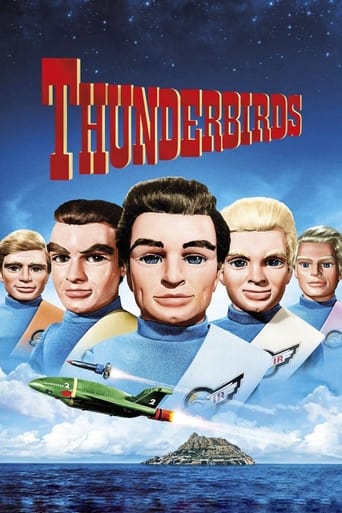
Prime Video
Thunderbirds
Thunderbirds is a 1960s British science-fiction television series which was produced using a mixed method of marionette puppetry and scale-model special effects termed "Supermarionation". The series is set in the 21st century and follows the exploits of International Rescue, a secret organization formed to save people in mortal danger with the help of technologically advanced land, sea, air and space vehicles and equipment, launched from a hidden base on Tracy Island in the South Pacific Ocean.
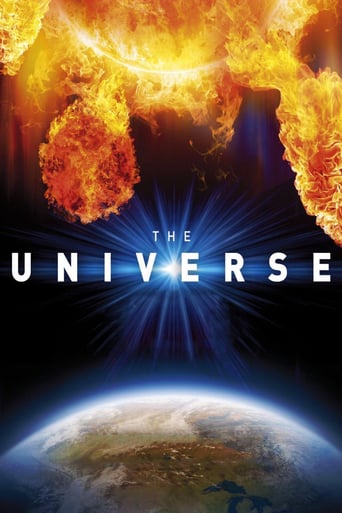
Prime Video
The Universe
From the planets to the stars and out to the edge of the unknown, history and science collide in a wondrous yet deadly adventure through space and time.
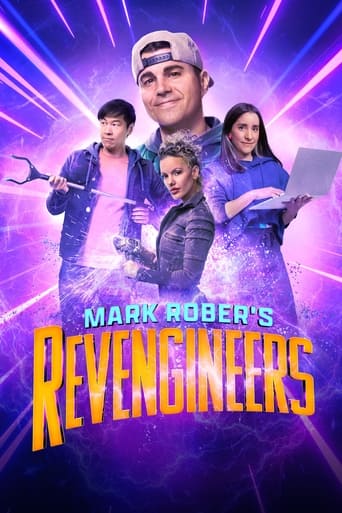
Max
Mark Rober's Revengineers
Mark Rober, former NASA engineer and current Apple engineer, created a viral glitter prank to serve justice to doorstep delivery thieves. Now you can join him and his team to take down the morally impaired. He'll build a trap, set the bait and wait.

Prime Video
Invader ZIM
Invader Zim is an American animated television series created by Jhonen Vasquez. The show premiered on Nickelodeon on March 30, 2001. The series involves an extraterrestrial named Zim who originates from a planet called Irk, and his ongoing mission to conquer and destroy Earth. His various attempts to subjugate and destroy the human race are invariably undermined by some combination of his own ineptitude, his malfunctioning robot servant GIR, and a young paranormal investigator named Dib, one of the very few people attentive enough to be aware of Zim's identity.
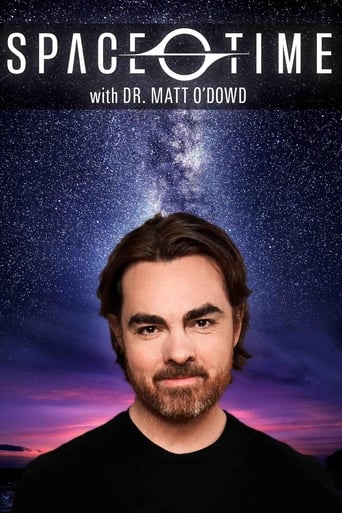
PBS Space Time
Space Time explores the outer reaches of space, the craziness of astrophysics, the possibilities of sci-fi, and anything else you can think of beyond Planet Earth with our astrophysicist host: Matthew O’Dowd.

Netflix
The Future Of
With the help of industry experts, this innovative docuseries examines new and emerging technological trends to imagine revolutionary possibilities.

HULU
Critter Fixers: Country Vets
100 miles south of Atlanta, Dr. Hodges and Dr. Ferguson are two longtime friends who own and operate Critter Fixer Veterinary Hospital. Together with their loving staff, Drs. Hodges and Ferguson treat and care for over 20,000 patients. Between emergency visits to the office, and farm calls throughout rural Georgia - the Critter Fixers are constantly bombarded with unique cases you only see in the country.
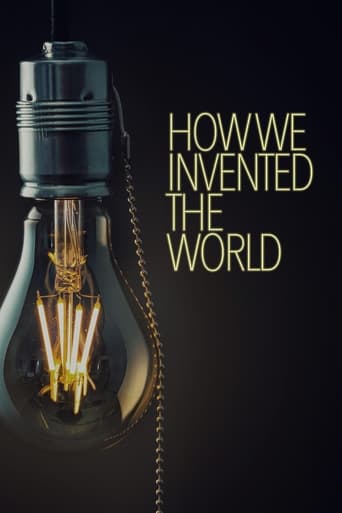
How We Invented The World
How We Invented the World is the ultimate action-packed, hi-energy, landmark series that examines the four inventions that define the modern world - mobiles, cars, planes and skyscrapers -celebrating the people and connections that made them possible. Each playing a crucial role in where we are now in the 21st Century - able to travel the globe, to talk to one another at any time at the push of a button, to live in huge cities, to commute, to capture the world we live in, making the fantasies we create come to life. This four part series lifts the lid on how these iconic inventions came to be. Showcasing the people who have shaped our lives in ways that they could have never imagined or anticipated, this series reveals stories of human ingenuity, extraordinary connections, unprecedented experimentation and jaw dropping accidents that created the world as we know it.

The Bell System Science
The Bell System Science Series consists of nine television specials made for the AT&T Corporation that were originally broadcast in color between 1956 and 1964. Marcel LaFollette has described them as "specials that combined clever story lines, sophisticated animation, veteran character actors, films of natural phenomena, interviews with scientists, and precise explanation of scientific and technical concepts — all in the pursuit of better public understanding of science.
Top Streaming TV Show
#1

Grey's Anatomy
March. 27,2005
7.6
#2

A Teacher
November. 10,2020
6.9
#3

The Mandalorian
November. 12,2019
8.6
#4

Game of Thrones
April. 17,2011
9.2
#5

Station 19
March. 22,2018
7
#6

The Undoing
October. 25,2020
7.4
#7
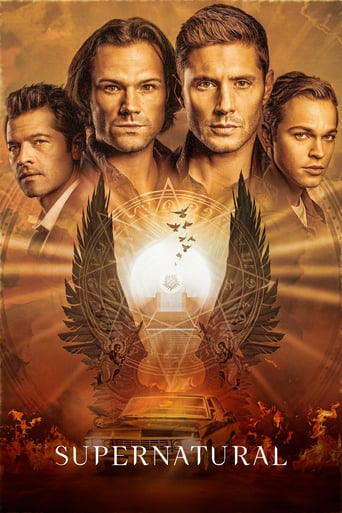
Supernatural
September. 13,2005
8.4
#8

The Last Dance
April. 19,2020
9.1
#9

Euphoria
June. 16,2019
8.3
#10

Fear the Walking Dead
August. 23,2015
6.8

